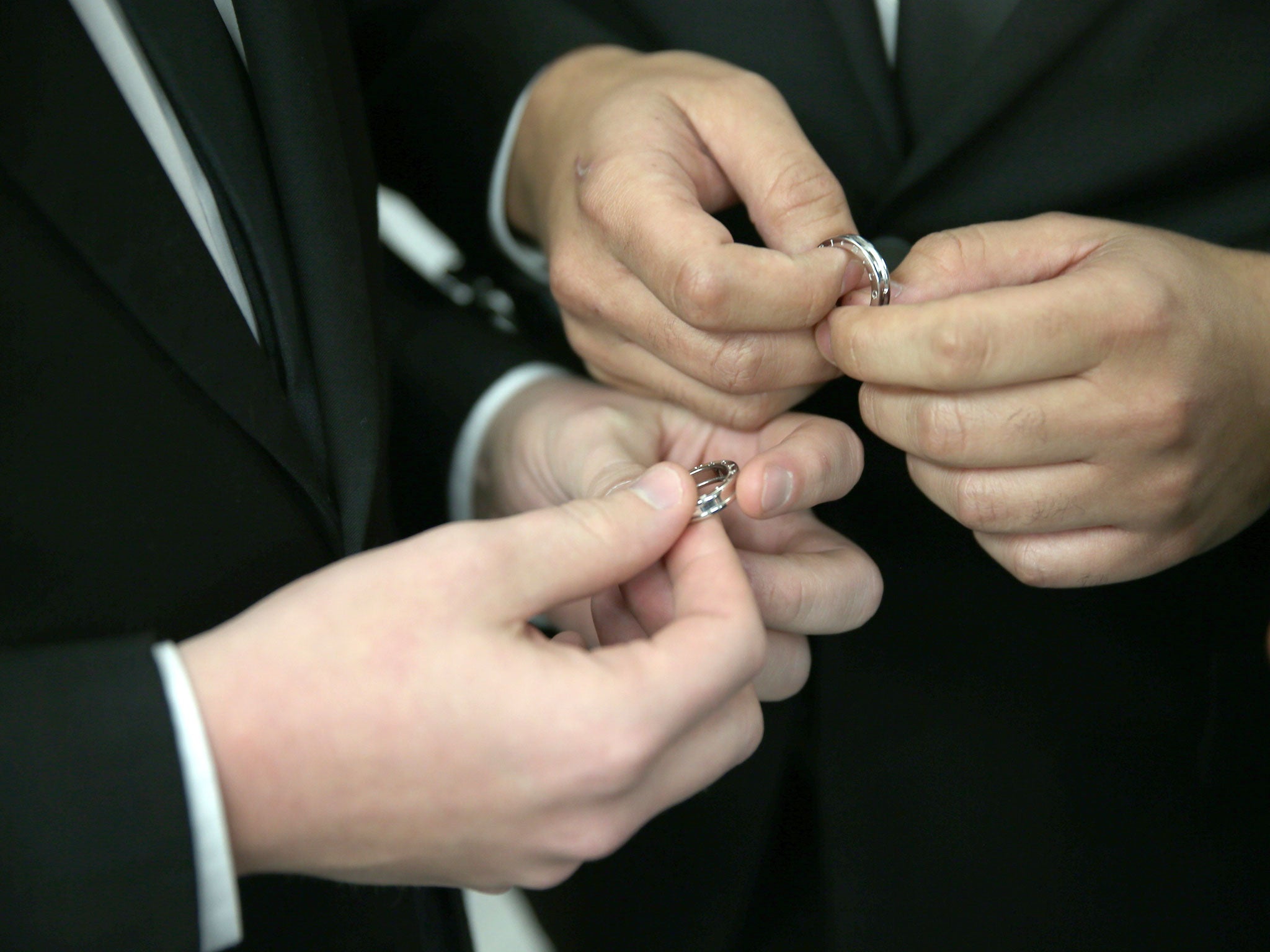Russia fails to stop UN staff benefits for same-sex couples
The change was proposed by the UN Secretary General last summer

Your support helps us to tell the story
From reproductive rights to climate change to Big Tech, The Independent is on the ground when the story is developing. Whether it's investigating the financials of Elon Musk's pro-Trump PAC or producing our latest documentary, 'The A Word', which shines a light on the American women fighting for reproductive rights, we know how important it is to parse out the facts from the messaging.
At such a critical moment in US history, we need reporters on the ground. Your donation allows us to keep sending journalists to speak to both sides of the story.
The Independent is trusted by Americans across the entire political spectrum. And unlike many other quality news outlets, we choose not to lock Americans out of our reporting and analysis with paywalls. We believe quality journalism should be available to everyone, paid for by those who can afford it.
Your support makes all the difference.The UN has rejected an attempt by Russia to stop the spouses of General Assembly staff in same-sex marriages from enjoy the same family benefits as opposite-sex couples.
Last summer, the UN Secretary General Ban Ki-moon announced plans which would see all staff in same-sex marriages receive perks, regardless of laws on same-sex marriage in their home countries.
Today, the General Assembly’s budget committee, which approves funding to pay for the over 40,000 staff members who would be affected by the change, voted against an attempt by Russia and other opponents of gay marriage to stop the measures.
UN deputy spokesman Farhan Haq said “this means that the policy stands,” adding that Ban welcomes the affirmation of his authority under the U.N. Charter to make such decisions. Ban has been an outspoken supporter of gay rights.
Some 43 countries, including China, India and Zimbabwe, supported the Russian-sponsored resolution, 80 opposed it and 37 abstained.
US Ambassador Samantha Power, who voted against the resolution, said in a statement after the vote.
She added that it set a dangerous precedent in challenging the Secretary-General’s authority to make administrative decisions.
Jessica Stern, executive director of the International Gay and Lesbian Human Rights Commission, said “the vote offered a new twist on the kind of homophobic scapegoating we see globally.”
“This was a disingenuous effort to shed the dignity of LGBT employees at the U.N., while clawing at the authority of the secretary general,” she said. “Those who sided with Russia should be ashamed of such a craven vote.”
The proposition is the latest example of the Russian government’s anti-LGBT stance, and comes after it introduced a controversial propaganda law in 2013.
Russia strongly opposes same-sex marriage and has adopted laws restricting gay rights activities.
When the country's deputy ambassador Petr Iliichev attempted to persuade UN members to vote for the resolution, he said the directive Ban issued last June can provide the basis "for legal conflict with national legislation" of UN member states.
“We think we should leave the status quo. It is an example of how the United Nations respects cultural differences,” Iliichev said.
Join our commenting forum
Join thought-provoking conversations, follow other Independent readers and see their replies
Comments